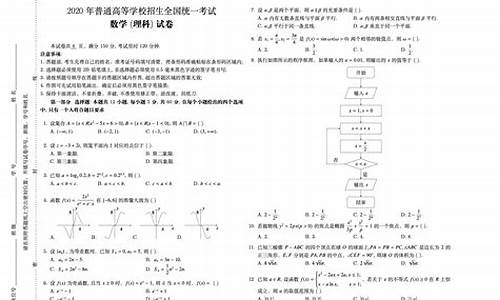您现在的位置是: 首页 > 教育政策 教育政策
高考英语语法讲解_高考英语语法梳理
tamoadmin 2024-05-18 人已围观
简介《高中英语语法-英语介词的翻译技巧》由留学liuxue86.com我整理。本内容整理时间为05月12日,如有任何问题请联系我们。 英语介词的翻译技巧 英语中大多数介词含义灵活,一词多义多用。能够正确的掌握介词的翻译技巧对于我们更好的理解和掌握介词的用法具有很好的帮助作用。除了一些常用短语已有译法外,大量介词需要从其基本意义出发,联系上下文加以灵活处理。下面我们就来简明地介绍几种基本译法。

《高中英语语法-英语介词的翻译技巧》由留学liuxue86.com我整理。本内容整理时间为05月12日,如有任何问题请联系我们。
英语介词的翻译技巧
英语中大多数介词含义灵活,一词多义多用。能够正确的掌握介词的翻译技巧对于我们更好的理解和掌握介词的用法具有很好的帮助作用。除了一些常用短语已有译法外,大量介词需要从其基本意义出发,联系上下文加以灵活处理。下面我们就来简明地介绍几种基本译法。
(一)转译:英语中常用介词来表达动作意义。汉译时,可将介词转译成动词。
①在作表语的介词短语中,介词常转译为动词,而连系动词则省略不译。如:
This machine is out of repair.
这台机器失修了。
②在作目的或原因状语的介词短语中,介词有时转译成动词。如:
The plane crushed out of control.
这架飞机失去控制而坠毁。
③在作条件、方式或方法状语的介词短语中,介词有时转译成动词。如:
But even the larger molecules with several hundred atoms are too small to be seen with the best optical microscope.
但是,即使有几百个原子的分子也是太小了,用最好的光学显微镜也看不见。
④介词短语作补足语时,其中介词常转译成动词。如:
Heat sets these particles in random motion.
热量使这些粒子作随机运动。
(二)增译:增词不是无中生有,而是要根据上下文特别是与介词搭配的动词或形容词的含义加得恰当。有不少情况,句中与介词搭配的动词或形容词不出现,如照原文结构无法把意思表达清楚,甚至易于误解时,这就需要增词。如:
Thats all there is to it.
那就是与此有关的全部内容。(原句中 to=related to)
The engineer was taken ill with consumption.It was flour on the lungs,the doctor told him at the time.
这个工程师得了肺一病、那是由于面粉对肺部的影响,当时医生这样对他说的。
因此,熟悉介词与动词或形容词的习惯搭配是增词并正确理解词义的一种重要手段。
(三)分译:介词短语作定语时,往往是定语从句的一种简略形式。介词短语作状语时,有时是状语从句的简略形式。有些介词短语还是并列句的简略形式。因此汉译时,有的可以拆句分译。
①译成并列分句。
The porous wall acts as a kind of seine for separating molecules.
多孔壁的作用就象一把筛子,它把不同质量的分子分开。
②译成让步分句。
With all its disadvantages this design is considered to be one of the best.
这个设计尽管有种种缺点,仍被认为最佳设计之一。
③译成真实或虚拟条件分句。
Mans warm blood makes it difficult for him to live long in the sea without some kind warmth.
人的血液是热的,如果得不到一定的热量,人就难以长期在海水中生活。
④译成原因分句。
We cannot see it clearly for the fog.
由于有雾,我们看不清它。
The machine is working none the worse for its long service.
这部机器并不因使用的时间长而性能变差了。
⑤译成目的分句。
This body of knowledge is customarily divided for convenience of study into the classifications: mechanics, heat,light,electricity and sound..
为了便于研究起见,通常将这门学科分为力学、热学、光学、电学和声学。
(四)不译:不译或省略翻译是在确切表达原文内容的前提下使译文简练,合乎汉语规范,决不是任意省略某些介词。
①表示时间或地点的英语介词,译成汉语如出现在句首,大都不译。如:
There are four seasons in a year.
一年有四季。
②有些介词如for(为了),from(从),to(对),on(在时)等,可以不译。如:
The air was removed from between the two pipes.
两根管子之间的空气已经抽出。
Answers to questions 2 and 3 may be obtained in the laboratory.
问题2和3的答案可以在实验室里得到。
③表示与主语有关的某一方面、范围或内容的介词有时不译,可把介词的宾语译成汉语主语。如:
Something has gone wrong with the engine.
这台发动机出了毛病。
Gold is similar in color to brass.
金子的颜色和黄铜相似。
④不少of介词短语在句中作定语。其中of(的)往往不译。如:
The change of electrical energy into mechanical energy is done in motors.
电能变为机械能是通过电动机实现的。
Some of the properties of cathode rays listed below.
现将阴极射线的一些特性开列如下。
(五)反译:在不少情况下,有的介词短语如不从反面着笔,译文就不通,这时必须反译。如:
①beyond,past,against等表示超过某限度的能力时,短语有时用反译法。如:
It is post repair.
这东西无法修补了。
There are some arguments against the possibility of life on this planet.
有些论据不同意这行星上可能有生物。
②off,from等表示地点,距离时,有时有反译法。如:
The boat sank off the coast.
这只船在离海岸不远处沉没了。
③but,except,besides等表示除去、除外时,有时用反译法。如:
Copper is the best conductor but silver.
铜是仅次于银的最优导体。
The mdelecular formula,C6H14,does not show anything except the total number of carbon and hydrogen atoms.
分子式C6H14只用来表示碳原子和氢原子的总数。
④from,in等介词短语作补足语时,有时用反译法。如:
An iron case will keep the Earths magnetic field away from the compass.
铁箱能使地球磁场影响不了指南针。
The signal was shown about the machine being order.
信号表明机器设有毛病。 《高中英语语法-英语介词的翻译技巧》由留学liuxue86.com我整理
《高中英语语法-谈谈英语中的倒装》由liuxue86.com我整理。本内容整理时间为05月12日,如有任何问题请联系我们。
谈谈英语中的倒装
英语句子的基本语序是?主语+谓语+其它成分?,即主语在前,谓语在后。但有时出于修辞上的需要,我们将句子的整个谓语或者谓语的一部分放在主语前面,这就构成了倒装。倒装通常分部分倒装和完全倒装两种。
一、部分倒装
将谓语中的助动词或情态动词置于主语之前,就是部分倒装。部分倒装通常出现在以下场合:
1. 陈述句变为疑问句时,主语和谓语要部分倒装。例如:
They are talking about the new film. ? Are they talking about the new film?
They are talking about the new film. ? What are they doing?
2. ? only + 状语 / 状语从句?位于句首时,句子的主语或主句中的主语和谓语要部分倒装。例如:
Only yesterday afternoon did I finish my experiment.
Only in this way can you catch up with your classmates.
Only when you get to the top of the mountain can you see the tower.
3. 表示否定意义的副词或连词放在句首时,主语和谓语要部分倒装。例如:
Never shall I do the same thing again.
Not until all the fish died in the river did the villagers realize how serious the pollution was.
Hardly had we finished our dinner when the electricity was cut off.
4. 在含有 had , were , should 的虚拟条件句中,可以省略 if ,将 had , were , should 放在主语之前,构成部分倒装。例如:
Had you come here, you would have met the film star.
Were I you, I would take the money.
Should any one come to set me free, I would make him very rich.
5. 在 so ? that ?句式中,如果 so 引导的部分前置,主句中的主语和谓语需用部分倒装。例如:
So carelessly did he drive that he almost killed himself.
6. 当 so, neither, nor 位于句首时,可将其后与上面重复的谓语的一部分置于主语之前,构成部分倒装。例如:
? He has been to Beijing.
? So have I.
? Liu Jia can?t answer the question.
? Neither/Nor can Lai Fan.
说明:
1 ) so 位于句首时,具备三个条件才可以将主语和谓语部分倒装:① so 表示?也?的意思;②上句是简单句的肯定句;③上句的主语和 so 引导的句子主语不同。如果 so 所在的分句的主语与上句的主语相同,这时 so 的意思是?的确?, so 分句中的主、谓语无须倒装。例如:
? Jenny has decided to turn in the wallet.
? So she has.
2 )上面的句子有两个或两个以上的分句,而且这些分句中的谓语动词又不属于同一类型,但它们所陈述的情况也适合另一个人或物时,常用的结构为: So it is/was with ? 例如:
? Li Juan is a pretty girl and she studies in No.1 Middle School of Enshi.
? So it is with Meng Lu.
二、完全倒装
将整个谓语部分置于主语之前即为完全倒装。这种完全倒装的语序出现在下列场合:
1. away , down , up , in , out 等副词位于句首且主语为名词时,可将 come , go 等表示位置转移的动词放在主语之前;但主语为代词时,主语和谓语不倒装。例如:
The door opened and in came the teacher.
Down he sat by the table.
2. here 和 there 位于句首,且主语为名词时,可将主语和谓语全部倒装。例如:
Here is your rice.
There goes the bell.
3. 当句首的表语或状语是表示地点的介词短语时,句子中的主语和谓语要全部倒装。例如:
On the front wall is a blackboard. On the back wall hangs a map of China.
4. 有时为了使上下文紧密衔接,也要用完全倒装。例如:
They arrived at a farmhouse, in front of which sat a small boy.
5. 直接引语前置,引导语中的主语是名词时,主语、谓语通常要完全倒装。例如:
? Something is wrong with the machine, ? said Xiao Dan.
[巩固练习]
1. Look, ___________.
A. here the bus comes B. here is the bus coming
C. here comes the bus D. here the bus is coming
2. Out ___________, with a stick in his hand.
A. did Mike rush B. rushed Mike
C. Mike rushed D. Mike did rush
3. ___________, you can?t lift yourself up.
A. Even you?re strong B. In spite you?re strong
C. How strong you are D. Strong as you are
4. Only when you realize the importance of foreign languages ___________ them well.
A. you can learn B. can you learn
C. you learned D. did you learn
5. Never before ___________ seen such a wonderful film.
A. am I B. was I C. have I D. shall I
6. Not only ___________ to stay at home, but he was also forbidden to telephone his friends.
A. he was forcing B. he was forced
C. was he forcing D. was he forced
7. No sooner ___________ asleep than she heard a knock at the door.
A. she had fallen B. had she fallen
C. she had fell D. had she fell
8. Hardly ___________ down ___________ he stepped in.
A. had I sat; when B. I had sat; when
C. had I sat; when D. had I sat; than
9. ? She has passed the exam.
? ___________.
A. So am I B. So have I
C. So I have D. So I am
10. ? He didn?t meet Mr Smith.
? ___________.
A. Neither did she B. Nor didn?t she
C. Neither she did D. So didn?t she
Key :
1. C 2. B 3. D 4. B 5. C
6. D 7. B 8. A 9. B 10. A
湖北?杨顺学 《高中英语语法-谈谈英语中的倒装》由liuxue86.com我整理









